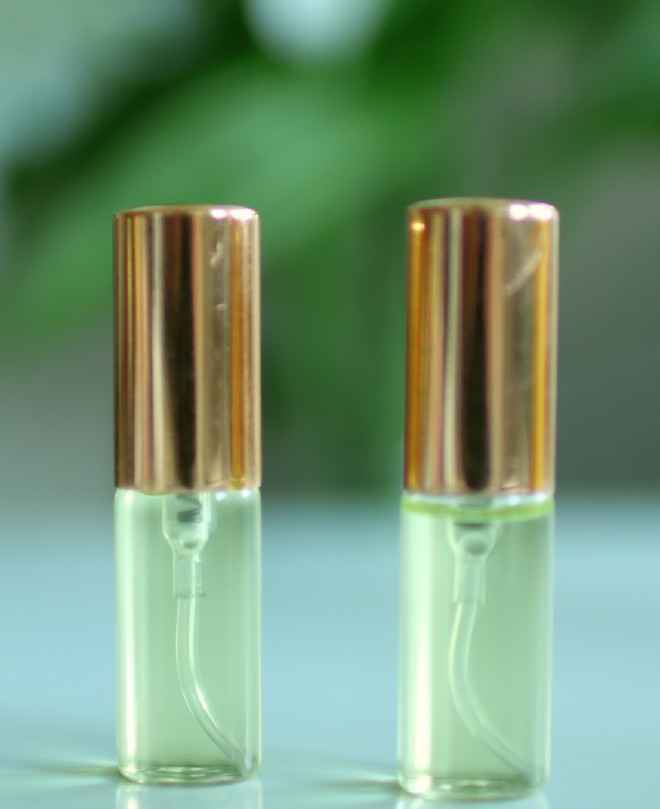Part 3 of the DIY Holiday Gifts series.
Seasonal fragrances are a great way to experiment with essential oils and create unique scents to share with friends and family. This fragrance relies on comforting warm & spicy essential oils, with a bright citrus zing for that festive feel.
Recipe
- 15.2g Ethanol or Everclear or 16g Vodka (50%+ Alcohol)
- 0.8g Distilled Water (Omit if using vodka)
- 4g Fragrance Blend (either Blend 1 or Blend 2 below)
Fragrance blends
Blend 1
2.2g (55%) Base notes:
- 1.5g Vanilla Essential Oil
- 0.7g Cinnamon Essential Oil
1.2g (30%) Middle notes:
- 0.8g Rosewood Essential Oil
- 0.4g Clove Essential Oil
0.6g (15%) Top notes:
- 0.3 Orange Essential Oil
- 0.3 Bergamot Essential Oil
Blend 2
2.2g (55%) Base notes:
- 1g Vanilla Essential Oil
- 1g Cinnamon Essential Oil
- 0.2g Frankincense Essential Oil
1.2g (30%) Middle notes:
- 0.6g Clove Essential Oil
- 0.6g Nutmeg Essential Oil
0.6g (15%) Top Notes:
- 0.3g Orange Essential Oil
- 0.3g Bergamot Essential Oil
Method
- Use a two decimal place scale to measure your top notes: Vanilla & Cinnamon essential oils, middle notes: Rosewood & Clove essential oils and Base notes: Orange & Bergamot essential oil.
- Make your perfume’s fragrance blend by combining your essentials oils. To the base notes, add the middle and then top notes. Mix until thoroughly combined.
- Cover and allow your fragrance blend to rest up until a week.
- Measure out your alcohol and distilled water and mix together.
- Pour your fragrance blend into the alcohol mixture and mix thoroughly.
- Cover and leave your perfume to marinate for up to 6 weeks.
- When you’re ready, check the strength of your fragrance and adjust by adding more water if necessary.
- Pour into a tinted glass perfume bottle and store away from direct sunlight.
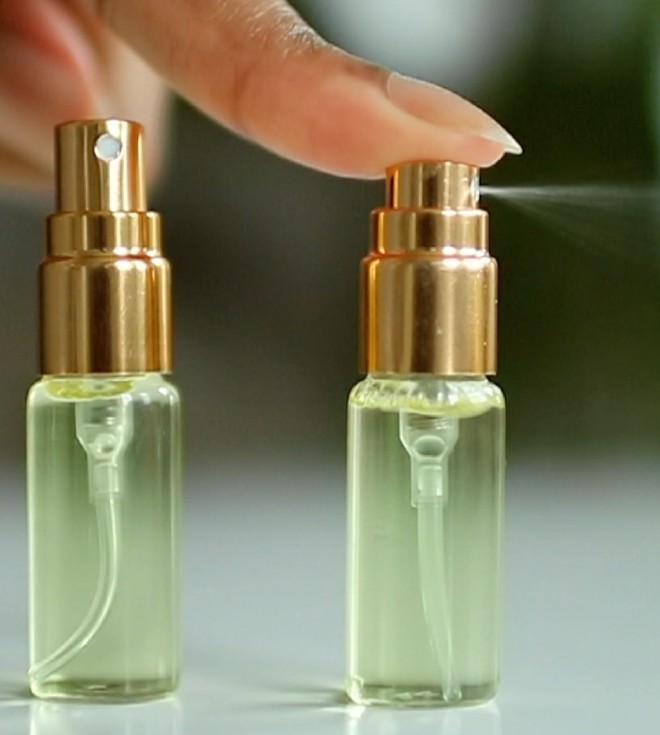
Making your own Perfume
Most perfumes are made up of a fragrance blend and a dilutant like alcohol or oil. For this warm & spicy winter fragrance, I’ve used an alcohol base but you can also easily adapt this recipe to make a perfume oil.
The above recipe can be used as-is or altered to suit your personal preferences. Depending on whether an essential oil is categorised as top, middle or base note, effects its initial impact, duration of scent and how it works with other fragrances. Most perfumes are made up primarily of base notes as they last the longest, then middle notes, and finally top notes that tend to be the first scent you noticed but fade shortly afterwards.
Consider this as a guideline rather than a strict rule, the most important aspect of making your perfume is that you enjoy your creations.
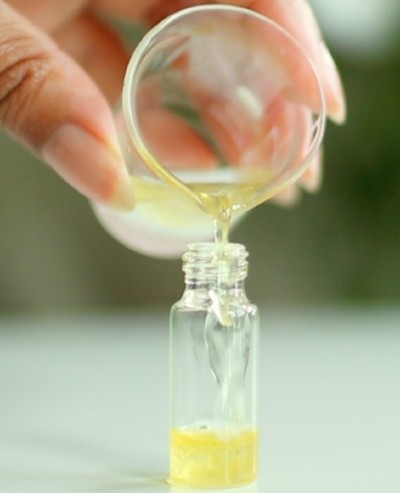
If you’re new to making fragrance, then I recommend you keeping to the distribution of top, middle and base note essential oils to ensure you get a complex and pleasant perfume.
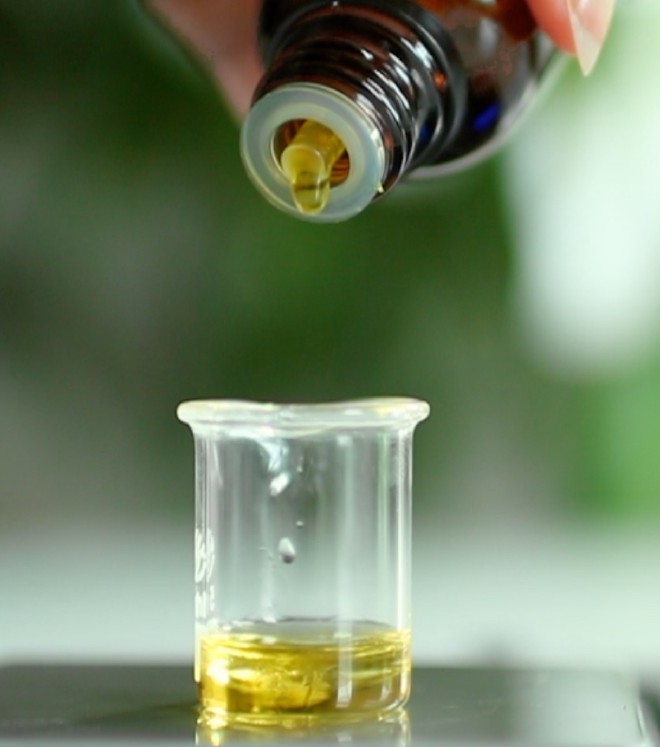
How to let your perfume mature
Creating custom perfume blends is a labour of love, that can take a while before it’s complete. Fortunately, it doesn’t require much effort on your part - just time! There are two stages that I recommend letting your perfume rest.
The first is after you’ve created your fragrance blend by combining the essential oils. You can develop a richer and more complex final perfume if you allow time for the oils to blend together for up to a week. This is optional but if you have the time, cover and store your fragrance blend away from sunlight. The difference in scent should be noticeable after it has had time to mature.
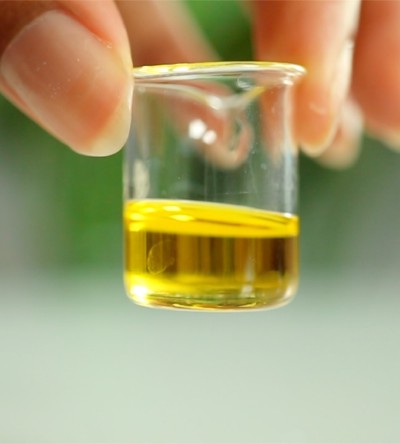
The second stage of maturity comes after you have combined your fragrance blend with the water and alcohol. Preferably before transferring to your perfume bottle, allow the fragrance to mature between 48 hours to 6 weeks. Again, the longer the fragrance matures, the better your final perfume will be. After this period you can make any last-minute adjustments to the strength by adding additional water, and then bottle your fragrance.
What alcohol should you use for perfume?
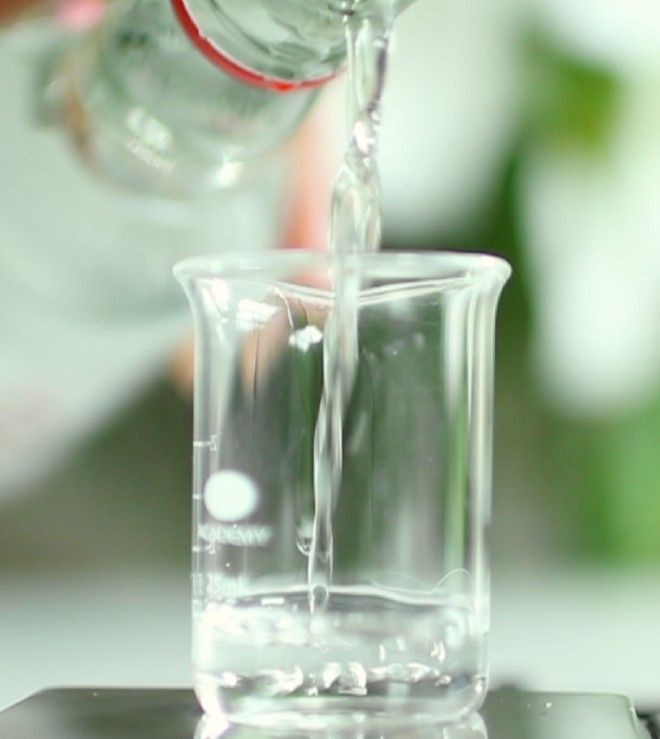
Ethanol is the first choice for perfume-making, it’s odourless and colourless making it perfect for perfume as it doesn’t interfere with your final fragrance. High-proof, food-grade ethanol is the easiest to obtain, however, it can still be difficult to source as it is strictly regulated given that it’s the same type of alcohol used in beverages. Below are a couple of alternatives that are often used for homemade perfumes and fragrances.
Alcohol alternatives to ethanol for perfume
- Everclear is a popular alternative to ethanol as its a pure 190-proof alcoholic beverage that is also transparent but doesn’t carry a heavy alcohol scent.
- 100-proof Vodka (50% alcohol) is a favourite amongst DIY enthusiast as it is by far the easiest to source. However, even at 50% is does contain the least amount of alcohol of all three options and thus you will also need to shake or mix your perfume before using if it is made with vodka.
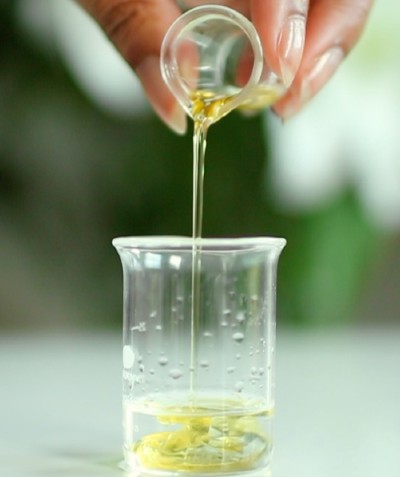
- Isopropyl or Rubbing Alcohol is not a suitable alternative to ethanol. It is incredibly drying on the skin, which can cause irritation over time. It is often the main ingredient in hand sanitizer and has a strong scent that will likely overpower your perfume.
Should you add water to perfume?
Water can be added to adjust the strength of your perfume and reduce the likelihood of skin irritation. How much you add depends on the alcohol you use as a base along with your finished perfume’s potency. As a guide, I’ve kept the water to 4% of this perfume formula, provided that you use either ethanol or Everclear.
If you are using vodka or another 50% drinking alcohol I would advise you to omit the water, as the remaining non-alcoholic content in the alcohol can be thought of effectively as water.
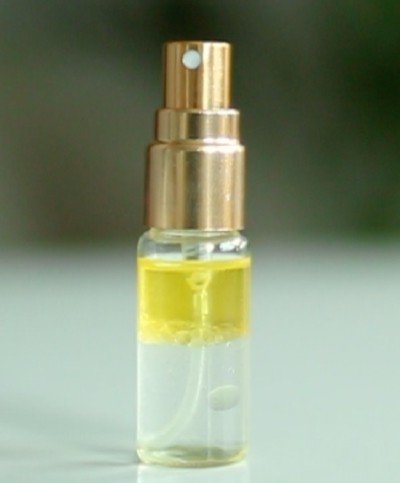
Please note, incorporating water into your perfume will lead to a degree of separation of the essential oils and the water. The more water you add, the more noticeable it will be. This will not effect the fragrance, but you will need to shake the perfume before applying.
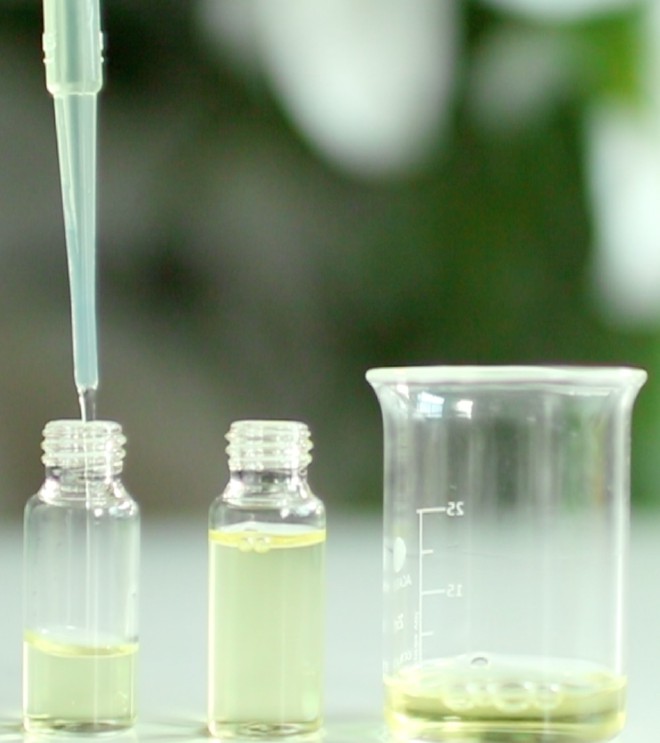
Customisation
The main notes of this fragrance are cinnamon, vanilla, clove and orange to create a warm & spicy aroma that perfectly compliments the winter months and festive seasons. Either fragrance can be used interchangeably and would work well for unisex perfumes, however, deeper, woodier tones are added to the “for him” fragrance to create complementary perfumes. Feel free to also substitute individual essential oils and play with the allocation of scents within each category to suit your personal tastes.
Please note that measuring fragrance or essential oils by “drops” is highly inaccurate as this is not a standardised measurement and can vary widely from different bottles and viscosity of the essential oil. If you plan on remaking perfumes and fragrances, I highly recommend measuring each essential oil by weight and keeping a record of any alterations.
